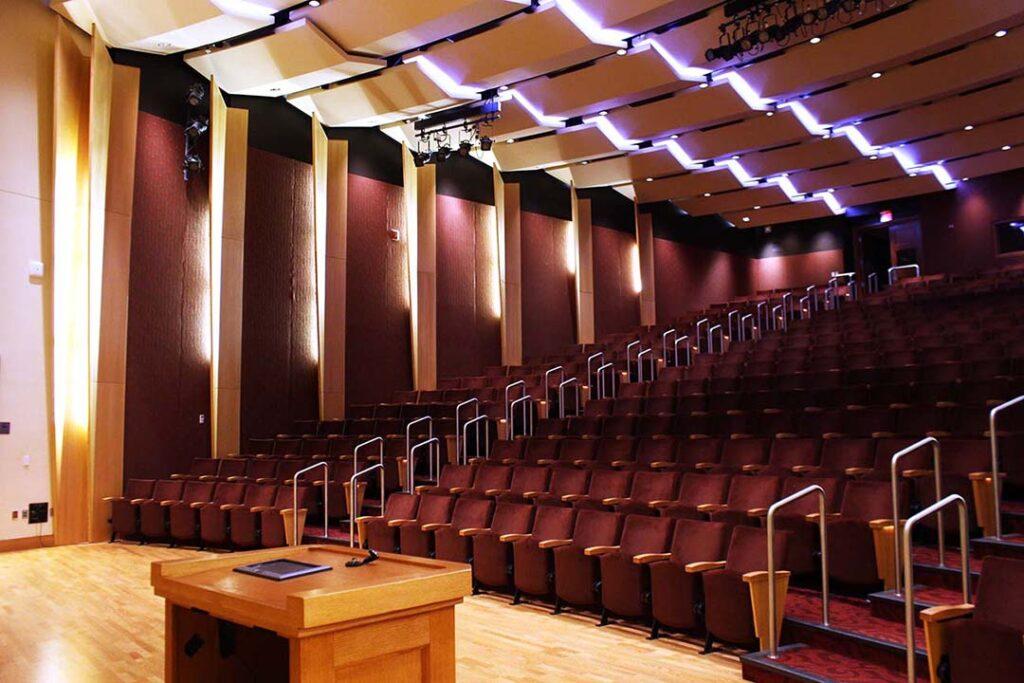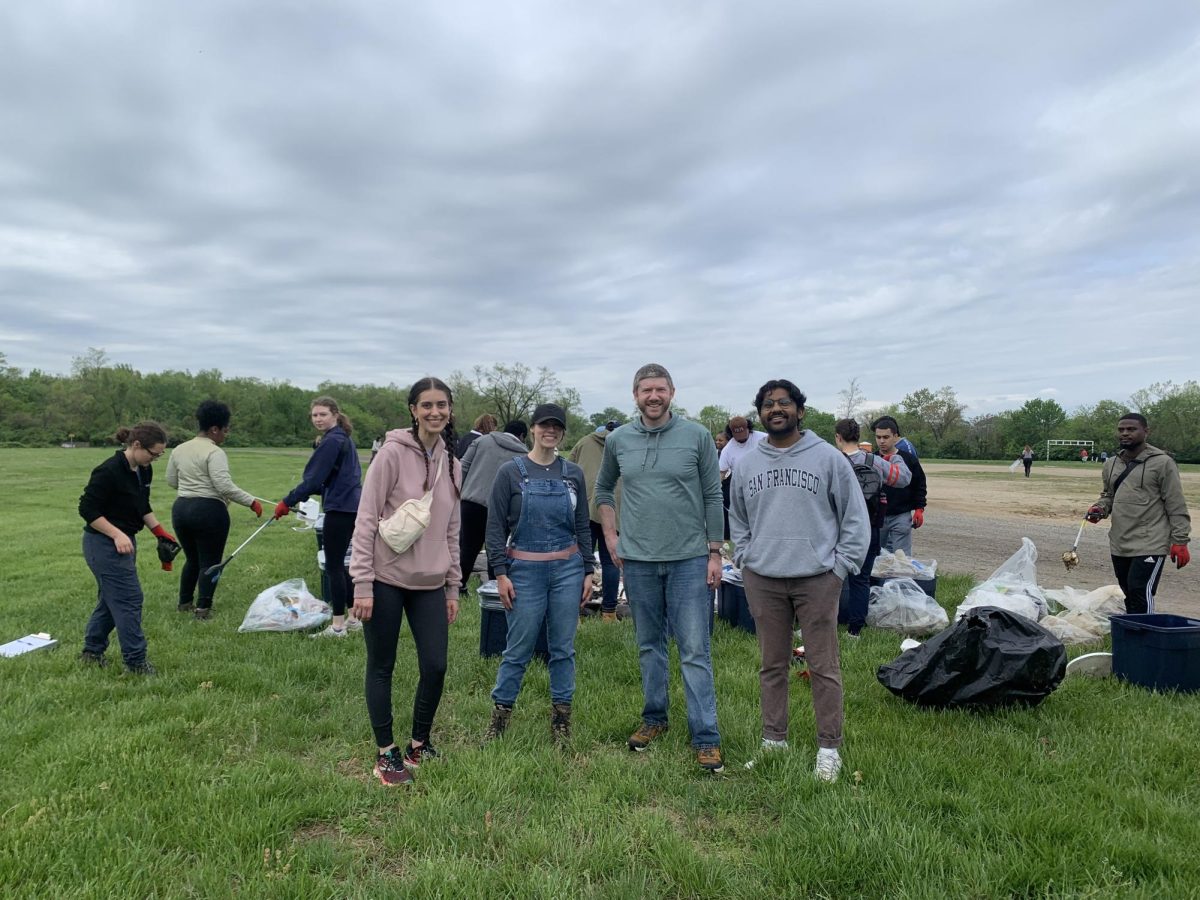Students anonymously posed sexual education questions to sexual health experts at an event aimed at increasing transparency and improving sexual education on Georgetown University’s campus.
Organizers of the event gave students free glow sticks at the lights-off event, titled “Sex in the Dark,” which was held in the Hariri Lohrfink Auditorium on Oct. 24. Georgetown partnered with Sex Discussed Here!, an organization that brings sex educators to college campuses, conferences and high schools across the country to improve transparency in sex education and give an opportunity for students to ask questions, to host the event. Students submitted questions on their phones, which could be up-voted by other participants as the speakers aimed to answer the most popular questions from students.
According to Donté Smith, who was enrolled at Georgetown from 2004 to 2006, was one of the speakers at the event and serves as a sex educator for Sex Discussed Here!, the Sex in the Dark program seeks to create a safe, anonymous space for students to ask questions about sexual health without fear of judgement from others.
Young adults in the United States often have limited access to comprehensive sexual education. While 96% of parents support sexual education in high school, it is mandated in just 39 states, and in these states where it is mandated, sexual education is not nearly as thorough as it should be. A recent study from Planned Parenthood revealed that students in 1995 were more likely to receive thorough and comprehensive sexual education than students in the past decade.
According to Sex Discussed Here! co-founder Dorian Solot, the information provided to students at Sex in the Dark events extended beyond the sexual education typically offered in K-12 schools.

“So often, the education about these topics that students receive in middle school and high school is all about what NOT to do,” Solot wrote to The Hoya. “But as college students enter young adulthood, many have really legitimate questions.”
According to Smith, Sex Discussed Here! aims to remedy this lack of access to sexual education by offering over 1,000 programs in 47 states throughout the past decade, all of which hope to give students the necessary information about sexual education.
“Sex in the Dark is all about answering students’ questions about bodies, relationships and sexuality,” Smith wrote. “For some students and some topics, the information may be relevant immediately. For others, it might not be useful for years, until they’re married or in a serious relationship.”
Smith said that while they were at Georgetown, they would have appreciated programming such as the Sex in the Dark event and reaffirmed the importance of making sexual health programming widely accessible for college students.
“When I was an undergrad here figuring out who I am and how to interact with the world, having sexual health programming like what Sex Discussed Here provides would have deepened my understanding of consent and my own body, and enriched my time as a Georgetown student,” Smith wrote.
According to Solot, increasing access to sexual education informs students how to protect themselves and informs safe decisions in the future.
According to a university spokesperson, trainings on healthy relationships and sexual health are offered by a variety of Georgetown University offices, including Health Education Services, the Women’s Center and the LGBTQ Resource Center. These trainings highlight the importance of consent and the experiences of the LGBTQ+ community, areas which the university believes are essential in ensuring sex education.
“We strive to make all of our trainings and well-being resources inclusive of all members of our community, inclusive of sexual orientation, background, gender and other factors,” the spokesperson wrote. “It is important that all students feel included in these important conversations.”
Smith said faith, sexual orientation, gender identity and one’s personal experiences play a core role in one’s understanding of their sexuality and relationships, warranting sexual education that remains intersectional and acknowledges the role these factors have. It is important for students to have the ability to ask questions relating to their own sexual health without feeling judged, according to Smith.
“When sex education is taught in a one-size-fits-all way, I think a lot of people tune out because the assumptions don’t fit their lives,” Smith wrote, “We try hard to hold all these possibilities in our minds when we’re teaching, to acknowledge there’s no such thing as one answer that feels right for everyone.”




















